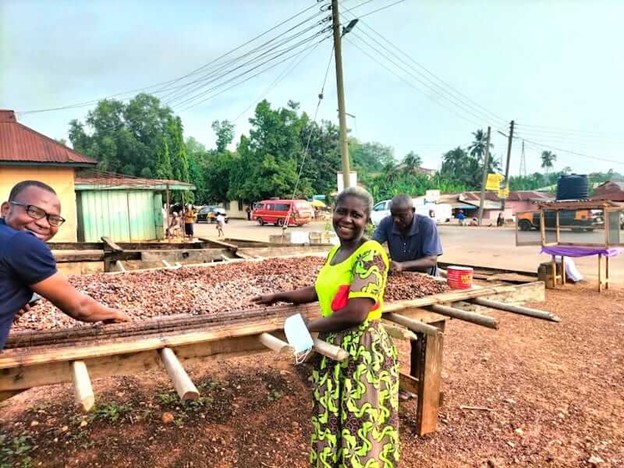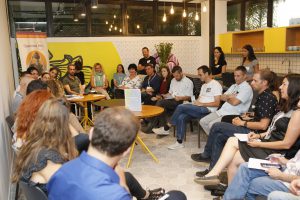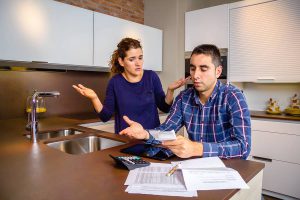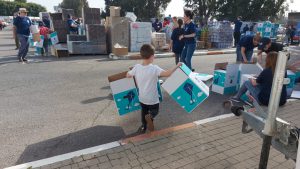No Poverty


Home » NO POVERTY » SDG 1 – Using Blockchain to Help African Farmers
SDG 1 – Using Blockchain to Help African Farmers
According to the UN, more than 1 billion people have been lifted out of extreme poverty since 1990. But at the global level more than 800 million people are still living in extreme poverty. While poverty is declining over time, major events are slowing down the progress towards achieving the No Poverty Goal (SDG-1). Poverty is affected and connected to health conditions, education, food insecurities and recently more and more to climate change. That’s where the Israeli Lemonade Crypto Climate Coalition comes in.
It might sound strange but using blockchain technology to fight poverty, hunger and climate change does have some logic to it. But for us to understand what is the new and innovative Initiative that the Lemonade Crypto Climate Coalition (LCCC) brings into the table we first have to understand how agriculture insurance works in Africa.
How does agricultural insurance in Africa work and when and how do the farmers get paid?
Agricultural insurance in Africa typically works by providing farmers with coverage for losses due to natural disasters, such as drought, floods, and pests. Farmers can purchase agricultural insurance from private insurance companies or through government-run agricultural insurance programs. When farmer experience a loss due to a natural disaster, they can make a claim on their agricultural insurance policy. The insurance company will then assess the claim and determine the amount of compensation that the farmers are entitled to. This compensation is typically paid in the form of a cash payment, which can be used by farmer to cover the costs of their losses.
The timing of when farmer get paid will depend on the specific terms and conditions of their agricultural insurance policy. Some policies may provide immediate compensation, while others may require the farmer to wait until the end of the agricultural season or until a certain event, such as the harvest, has occurred. According to the ISF Report in Africa alone, there are around 300 million smallholder farmers, the majority of whom aren’t financially protected against crippling climate risks such as floods and drought. Smallholder farmers are especially vulnerable to drought because many don’t have access to irrigation technology and rely on rainfall for their crops. That makes the basis of their livelihood, and main source of food, incredibly precarious.
This is typically where insurance can be very valuable, but in Africa , agriculture or weather insurance is either too expensive, or non-existent. Less than 3% of the farmer population ends up obtaining agricultural insurance.


So, what is the Lemonade Crypto Climate Coalition (LCCC) and how do they solve this problem?
The Lemonade Crypto Climate Coalition (LCCC) is the nonprofit arm of the Israeli insurance tech firm Lemonade. The Lemonade management created a special non-for-profit fund named Lemonade Foundation who is behind the new coalition. The Lemonade Crypto Climate Coalition is a group of organizations that are working together to use blockchain technology to help small farmers in Africa adapt to the effects of climate change. The coalition includes Lemonade, a peer-to-peer insurance company, and a number of other organizations, such as the United Nations Development Program and the World Wildlife Fund.
The Lemonade Crypto Climate Coalition uses blockchain technology to create a decentralized insurance platform that allows small farmers in Africa to purchase agricultural insurance. The platform uses smart contracts, which are self-executing contracts that are stored on the blockchain, to automate the process of buying and selling insurance. This makes it easier and more affordable for small farmers to access agricultural insurance.
What is so innovative in this solution?
One of the most innovative aspects of the Lemonade Crypto Climate Coalition’s offer is its use of climate data and predictive modeling to determine the risks faced by small farmers in Africa.
LCCC has teamed up with weather tech company Tomorrow.io to automate the data and risk factors for underwriting and processing insurance to subsistence farmers. Through this technology, they are implementing smart contracts (programmable functions on a blockchain backed network) which is a blockchain feature to automate the payout process. Users, the farmers, are deciding the terms of the contract in advance, and if conditions are met, payment is issued automatically by an AI service bot.
The reason this technology is a win-win and can remain profitable for all parties is due to the fact that blockchain features include something called “oracles” which gather and analyze immense amounts of data – in this case examining weather trends – in order to provide fair predictions of upcoming events.
Conclusion
Right now, LCCC is focused on Africa and assisting the subsistence farmers there, but they also have plans to expand the program elsewhere as part of the effort to achieve the UN’s SDG’s 1 and 2. They have already teamed up with a local Kenyan farming company Pula, which helps finance local farmers to get the word out and get more farmers to join. Overall, the Lemonade Crypto Climate Coalition is using blockchain technology to create a decentralized insurance platform that makes it easier and more affordable for small farmers in Africa to access agricultural insurance. The coalition’s use of climate data and predictive modeling is particularly innovative, as it allows them to provide tailored insurance policies that are specifically designed to address the risks faced by small farmers in different regions of Africa.
Related articles


SDG 1- Hackaveret – Combating the cycle of poverty with innovative projects
No Poverty Every community has a portion of the population that comes from a disadvantaged background. At-risk youth, people with disabilities, financially strapped elderly, and


SDG 1- Paamonim – Preventing Poverty in Israel
No Poverty Israel has a rapidly growing economy but according to the World Bank struggles with higher poverty levels compared to other developed countries. Israel’s government in


SDG 1 – Resilient Safety Net
No Poverty The Government’s changing of the guard has undeniably had some unpleasant incidents. But there was at least one beautiful instant demonstrating that Israel’s


















